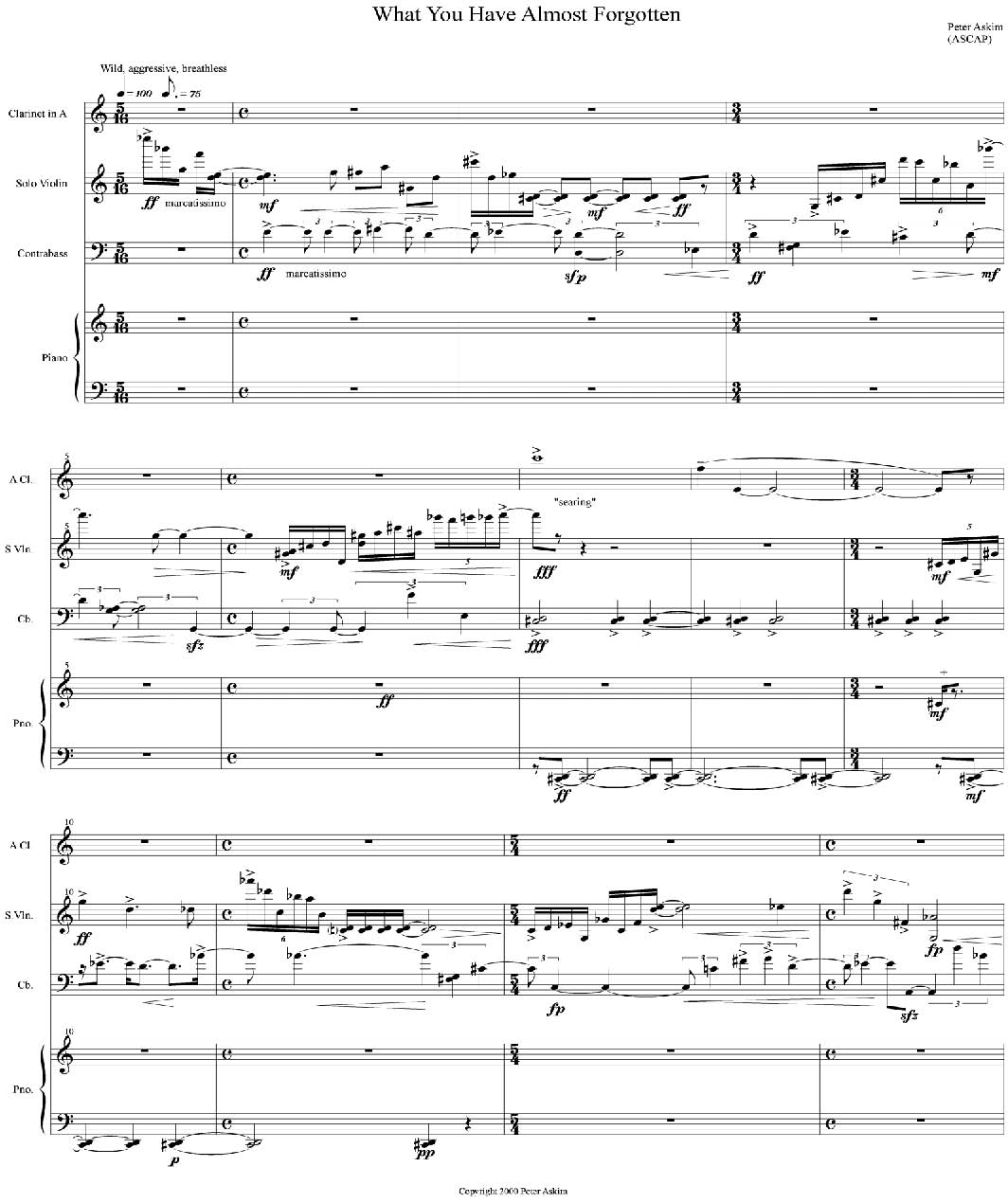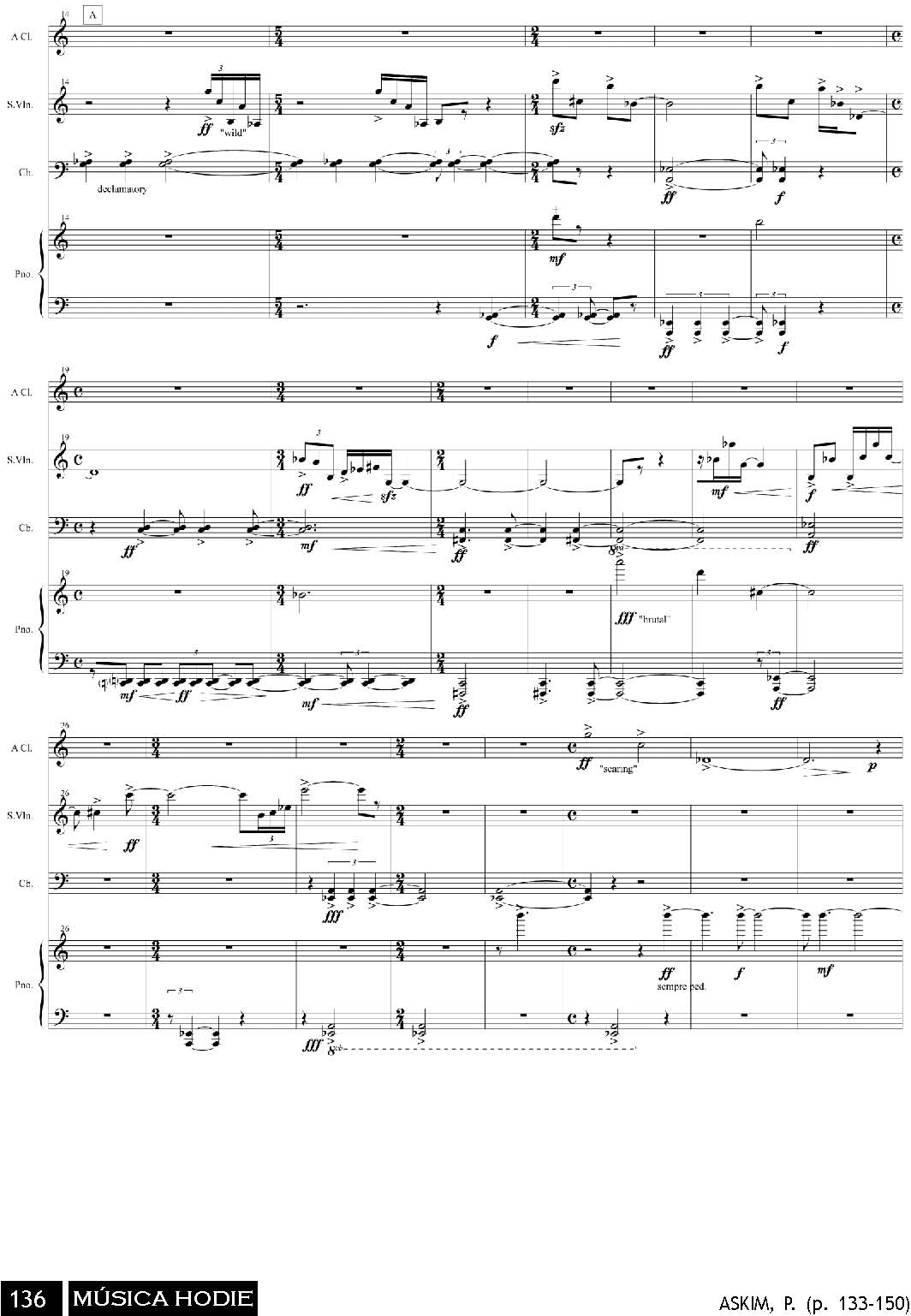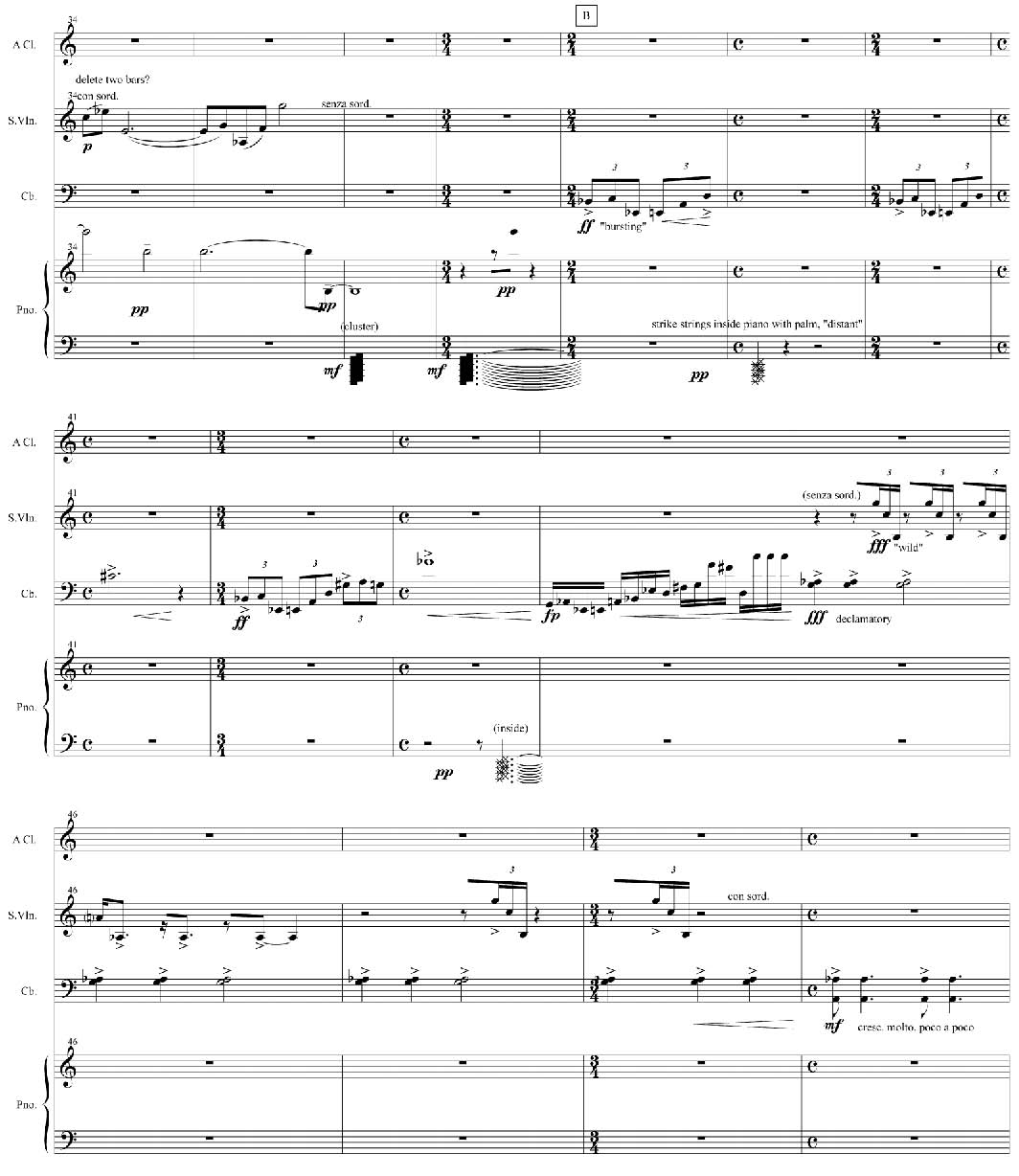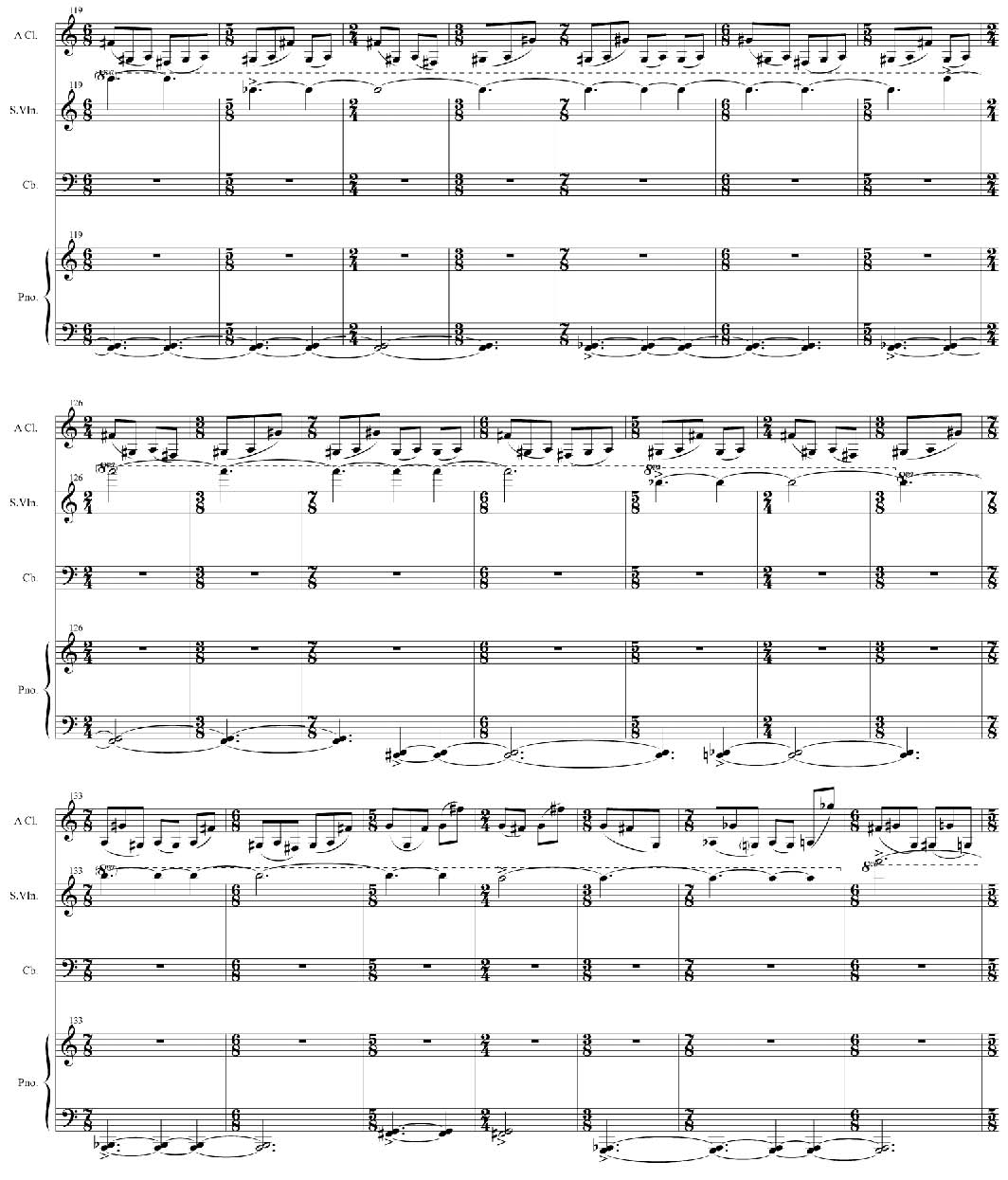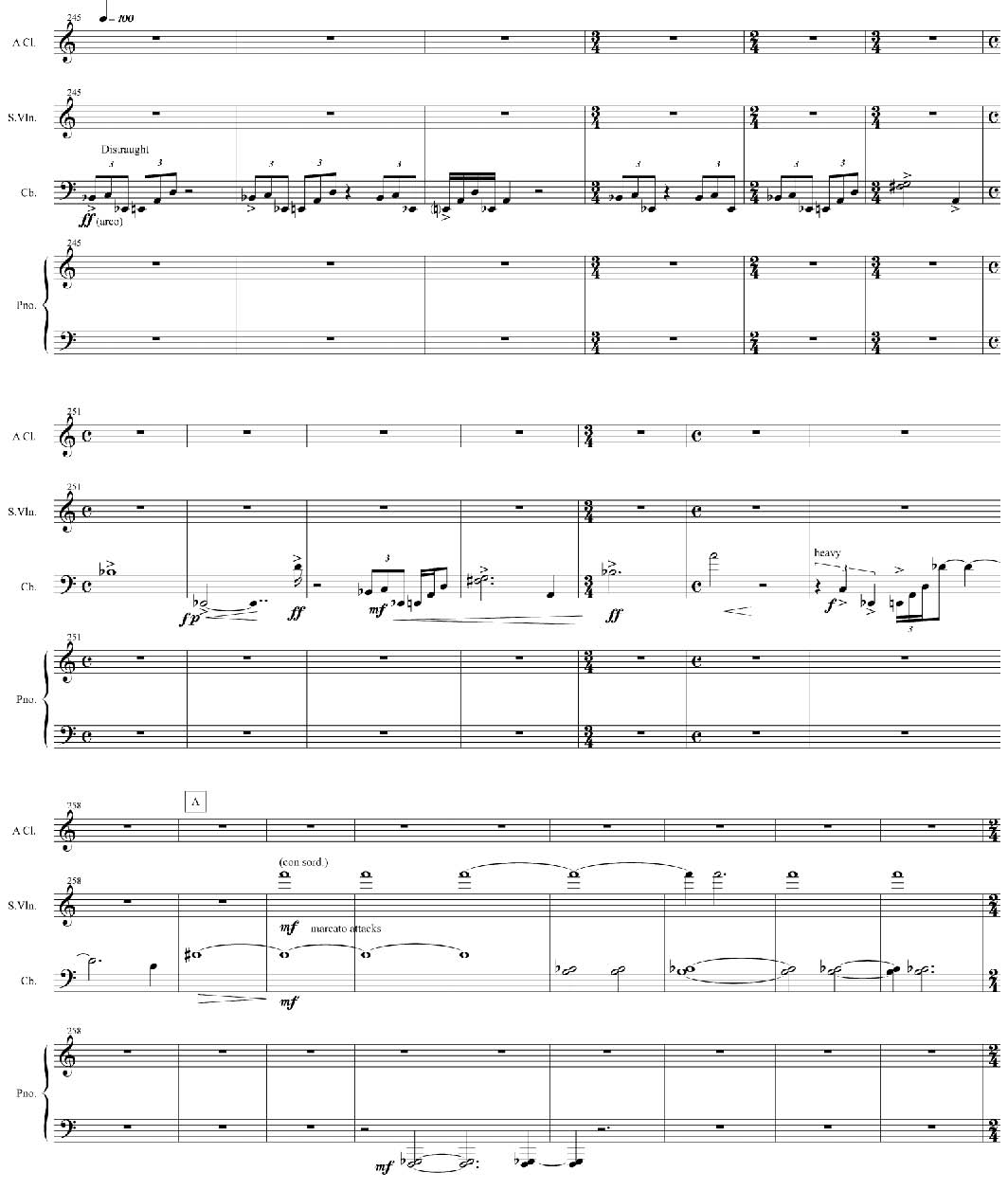WHAT YOU HAVE ALMOST FORGOTTEN (NOTES)
Peter Askim
peter@peteraskim.com
What You Have Almost Forgotten is a work in four movements, scored for clarinet, piano, violin and bass. The title of the piece comes from a book of poetry by the Hungarian poet Illyes. The music deals with not the poetry of the book, but rather a person connected to the book. In a way, it is a musical portrait of a relationship that is no longer – one that now exists only in the tenuous, fragile, changeable and sometimes arbitrary realm of memory.
As the title suggests, the piece deals with memory, in its many forms. We create and recreate our lives through memory – what we choose to remember, what we try to forget, and the memories which take on a life of their own. These memories exist, independent of our everyday lives – out of time, on a parallel plane.
Each movement of the work is linked by two pitches (Eb and A) and a musical idea that appears again and again: sometimes distorted and cloudy, sometimes violent and fiery. This musical idea is a fragment from an older work of mine – a piece which was itself “almost forgotten”. These musical memories which underpin the piece unfold at different speeds, with different meanings. The fragment which emerges insistently and aggressively in the first movement becomes almost frozen in the second. The third movement in particular evokes the idea of several different time frames occurring at the same time: cycles which converge and diverge independently of one another. In the final movement, everything is interrupted, ripped apart by a repeated, insistent statement by the bass. The two pitches which have underscored the entire work reemerge from the chaos, unchanged.
Despite the machinations and manipulations of the will, memory persists in the end, rising to the surface and proclaiming itself. That thing which you have almost forgotten still exists in memory, though you may try to forget.
Peter Askim
Askim studied at the Hochschule fur Musik und darstellende Kunst in Vienna and holds bachelors, masters and doctoral degrees from Yale University, where he graduated cum laude with Distinction in Music. His teachers include Ludwig Streicher, Donald Palma, Diana Gannett and George Rubino.
Active as a bassist, composer, and conductor, Peter Askim is a member of the Honolulu Symphony Orchestra and on the faculty of the University of Hawaii – Manoa, where he directs the Contemporary Music Ensemble. He has also taught at Brigham Young University Hawai’i, the Iolani School, and at the Bowdoin Summer Music Festival, where he was also a Resident Composer. He has received numerous honors for his compositions, including ASCAP awards, Meet The Composer, Inc. grants, a Cogswell Award for his chamber opera Laughter in the Dark and commissions from the International Society of Bassists, the Portland Chamber Music Festival, the Yale Symphony Orchestra, the Iolani and Kamehameha School Orchestras and the Honolulu Symphony.
Mr. Askim’s Vital Signs for solo bass was published in Liben’s Family Album 2 (http://www.liben.com/) and received critical praise in several international publications. The Honolulu Symphony Orchestra commissioned his orchestral work “On Awakening…” in celebration of its 100th anniversary. Recently, Mr. Askim won the 2002 International Society of Bassists Composition Competition for his “Eight Solitudes”. He was also commissioned to write the required piece for the 2003 ISB Solo Competition called “Edge”. Both those works have been published by Discordia Music (http://www.discordia-music.com/).
Mr. Askim has served as Music Director of the Branford Chamber Orchestra and makes frequent guest conducting appearances, recently leading the Honolulu Symphony Orchestra in a reading of works by University of Hawaii composers. He has also received critical praise as a jazz artist in such publications as Jazztimes, the New York Post and New York Newsday.
ASKIM, P. (p. 133-150)
